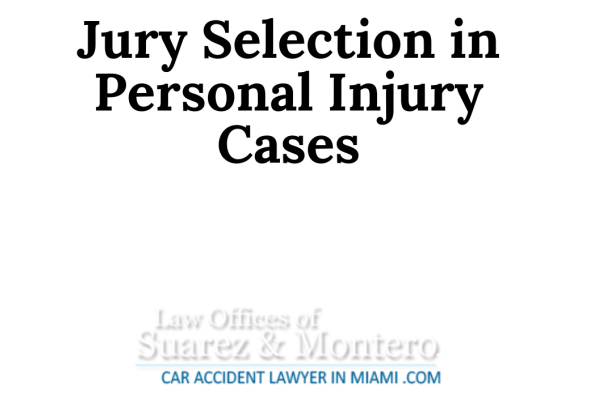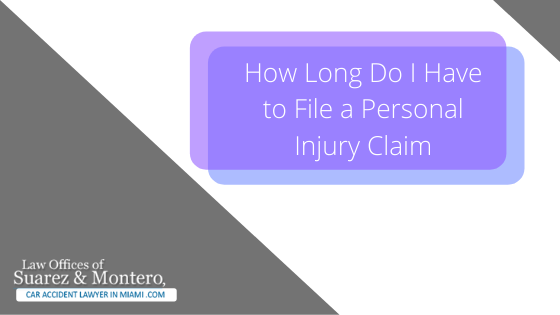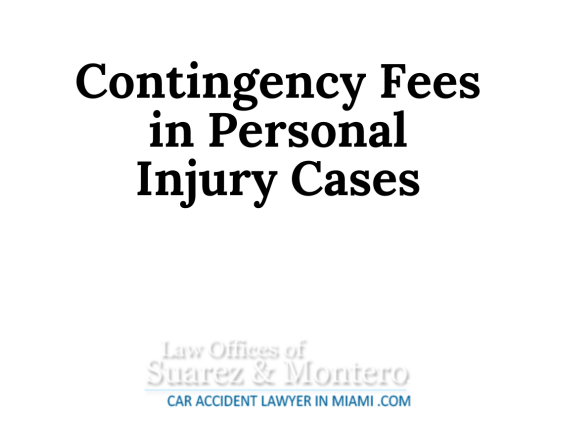
Jury Selection in Personal Injury Cases
Most car accident insurance claims are resolved before any lawsuit is filed. When a car accident lawsuit is filed, it seldom proceeds all the way to trial. This is because most civil lawsuits are settled before they ever must be litigated in a trial. However, if your car accident case makes it all the way to trial, you will want to know more about how a jury can affect the outcome of your case and how jurors are selected. In this blog post, we will go over the jury selection process in car accident cases.
Jury Selection in a Car Accident Case
Jury selection will be conducted either on the morning of the first day of trial or at some point in advance of trial. In either case, the process is rather simple. Once the potential jury pool has arrived and the lawyers and judge are settled in for the day’s business, the first major step in the trial of a case will be the selection of a jury. This process is set in motion long before anyone gets to the courtroom. At some point, probably many weeks or months in advance of your trial, notices will be sent to potential jurors that have been selected for jury duty for the time that your case will be tried. The manner of selection of these potential jurors is random and varies by state. Some means by which the lists are compiled include voter registration records, driver’s license and/or identification card lists or some other nondiscriminatory rolls of the jurisdiction’s residents. The notices sent to the chosen jurors will indicate that they are to be present at the courthouse on certain dates to potentially be chosen to serve on a jury. The first stage of the trial is called voir dire, and it is during this stage that the jury members are selected. Jury selection will begin with a room full of many more jurors than you will need for your case. The large number is one of the safeguards used to ensure a fair jury.
Peremptory Challenges and Challenges for Cause
The next step in the jury selection process will be to narrow down the number who have shown up into a group that will include those who will ultimately serve as the jury. Each side including the plaintiff and defendant are entitled to eliminate potential jurors for a variety of reasons. However, either party is not allowed to remove jurors for discriminatory reasons such as race, age, religion, gender, etc. In Florida, each side is entitled to the same number of peremptory challenges. During the jury selection process, both parties can use peremptory challenges and challenges for cause to get rid of any juror they wish to remove from the jury pool. These challenges are a very important component of the jury trial process. Once the pool is narrowed down from the big group to the smaller group to be chosen from, the rest of the jury selection process from this point is designed to accomplish two things: identify any jurors who have a clear bias to the parties or cases (these potential jurors are often dismissed by the judge) and help the lawyers decide when to use their peremptory challenges. When jury selection begins, the judge will tell everyone the names of the parties, a basic description of the issues in the case and the names of witnesses who will testify. The jurors will be asked if they know or are related to any of the parties or witnesses (or each other). If they do, the judge must decide whether their relationship or knowledge of a party or a witness is likely to make them biased toward that party. If so, the judge will dismiss that juror and another juror from the original pool will be randomly selected to replace the dismissed juror. Dismissing a juror on this basis is called dismissal for cause. There are no limits on how many jurors a judge may dismiss for cause. Most civil juries consist of six jurors and there are usually one or two alternate jurors extra that hear the case and deliberate if one of the main jurors gets sick or otherwise must leave the jury.
Accident Lawyer in Miami & Broward
There are many different types of personal injury cases. Car accidents are among the most common types of injury or tort cases. These cases can be difficult for attorneys who are not familiar with the rules of civil procedure in Florida. Apart from experience, it is also important to find an attorney who has the skills and experience needed to resolve your claim. The personal injury lawyers at Suarez and Montero are ready to provide you with top-notch legal services. We take all types of personal injury matters including motor vehicle accidents involving trucks, government vehicles, cars, motorcycles, bicycles, ATVs, pedestrians, etc. We have the tools and legal experience and would like to put it to work for you! At Suarez and Montero, we would like to help our clients focus on recovering from their injuries while we focus on protecting their legal rights under the law. Our personal injury lawyers are ready to provide proven legal representation and stand ready to protect your rights. We are available 24/7 to give you a free, no risk case consultation!
We serve clients throughout Florida including those in the following areas:
Miami-Dade: Aventura, Coral Gables, Doral, Fontainebleau, Hialeah, Homestead, Kendall, Miami, Miami Beach, Miami Lakes, North Miami, Tamiami, and Westchester.
Broward: Fort Lauderdale, Hallandale Beach, Hollywood, Pembroke Pines, and Weston; and Palm Beach County including Boca Raton, Lake Worth, and West Palm Beach.





